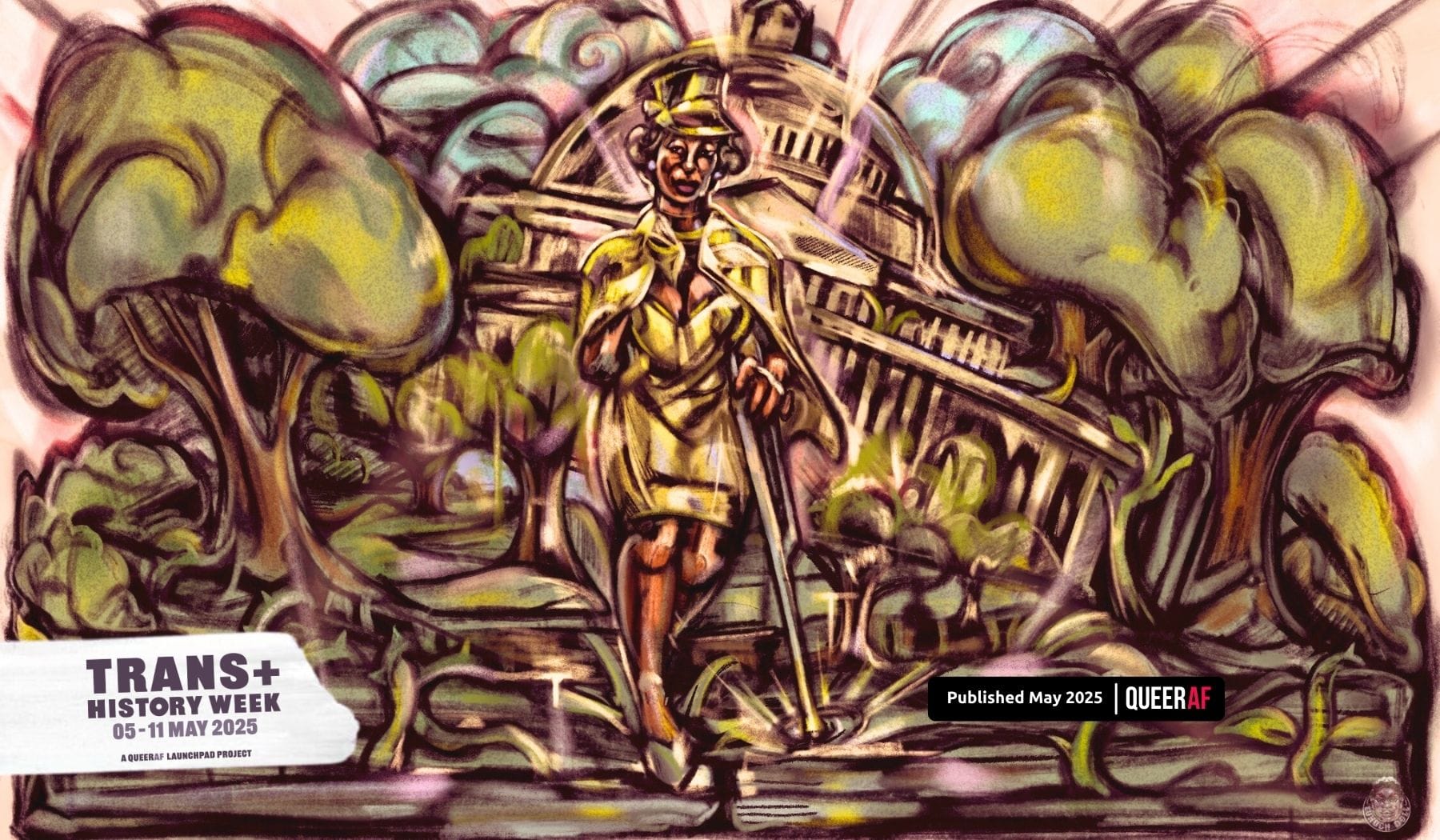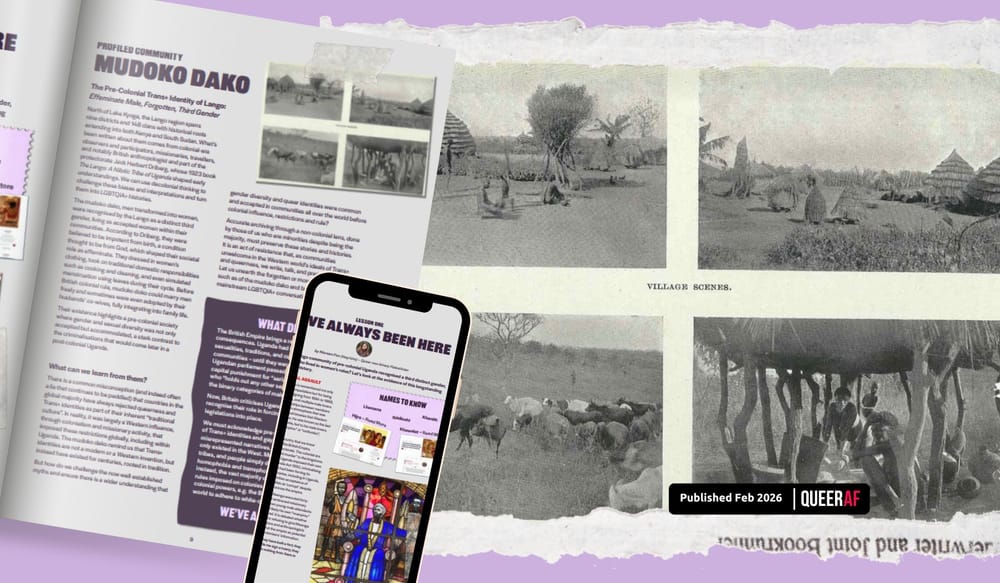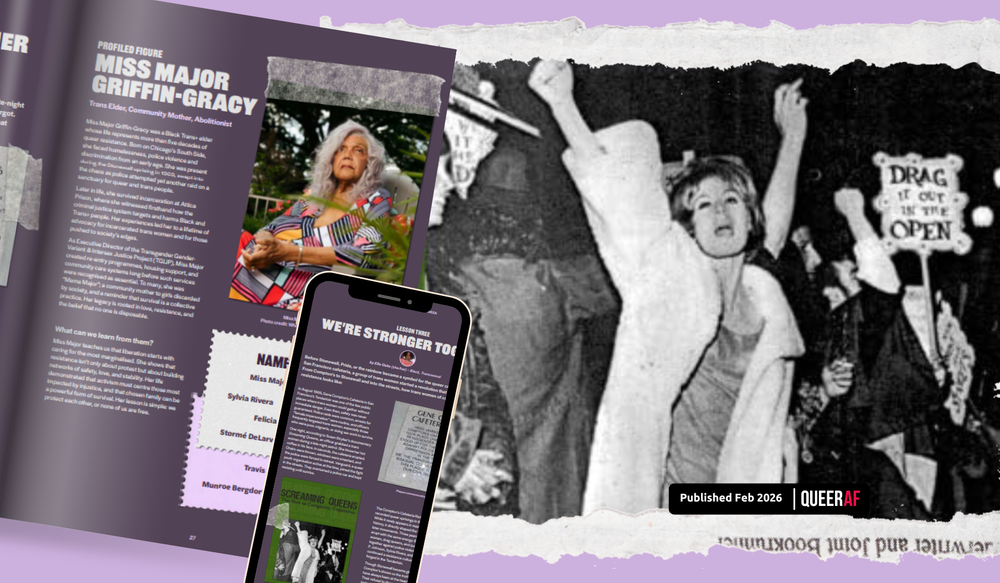
Frances Thompson was one of the first trans women to testify in front of the US Supreme Court. Her testiomony, was one of a handful of women's that changed civil rights for all Black Americans. Her story reminds us that historic fights for civil rights, led by Trans+ women of colour, have paved the way for all of us. CW: References to racial violence, sexual assault, police brutality and transphobia.
As an archivist, I am immersed in stories of the past. They call to me, pulling me into the lives of people I would never otherwise know.
When I think of Trans+ history, I think of Frances Thompson, whose persistent advocacy helped advance the rights of Black Americans.
Her legacy is one of unapologetic strength and determination as thefirst transgender woman to testify before Congress. Thompson was a beacon of Trans+ resilience who boldly spoke up in the face of systematic dehumanization.
While her story is not widely known, her impact is still felt today.
Frances Thompson was born into slavery in 1840. By the age of 26, she was living as a free woman in Memphis, Tennessee in a predominantly Black neighborhood. Thompson was a disabled, transgender woman who worked washing and sewing clothes. She walked with a crutch, due to what she described as "cancer of the foot."
Following the Civil War, in a period known as the “Reconstruction Era,” racial tensions in Tennessee erupted. In an atrocity now known as the Memphis Massacre of 1866, white supremacists targeted Frances' town.
Homes were burned down, 46 people were murdered, and Black women were sexually assaulted. Frances Thompson was among those targeted in this violent attack.
After surviving the Memphis Massacre, Frances Thompson committed to feminist, anti-rape activism. At a time when there was little recourse, sympathy, or legal pathways for Black survivors, Frances took to the stand.
Frances Thompson was one of just five brave women who gave testimony in the investigation of the Memphis Massacre. The testimonies of 170 courageous men and women forced the public to bear witness to the horrific events.
Survivor accounts from the 1866 race massacres in Memphis and New Orleans were used to advocate for civil rights for Black Americans.
These testimonies influenced state governments, ultimately leading to the passage of the Enforcement Act of 1871. This piece of legislation focused on combating paramilitary racial violence and intimidation by white supremacists.
While no perpetrators were convicted for the crimes committed during the Memphis Massacre, the testimonies of survivors like Frances Thompson shifted public perception.
Historians say that the power of these testimonials helped sway states to support the passage of the 14th Amendment. This monumental piece of civil rights legislation extended Constitutional rights to Black Americans, including formerly enslaved people.
These protections would not have been possible without persistent public advocacy from individuals like Frances Thompson.
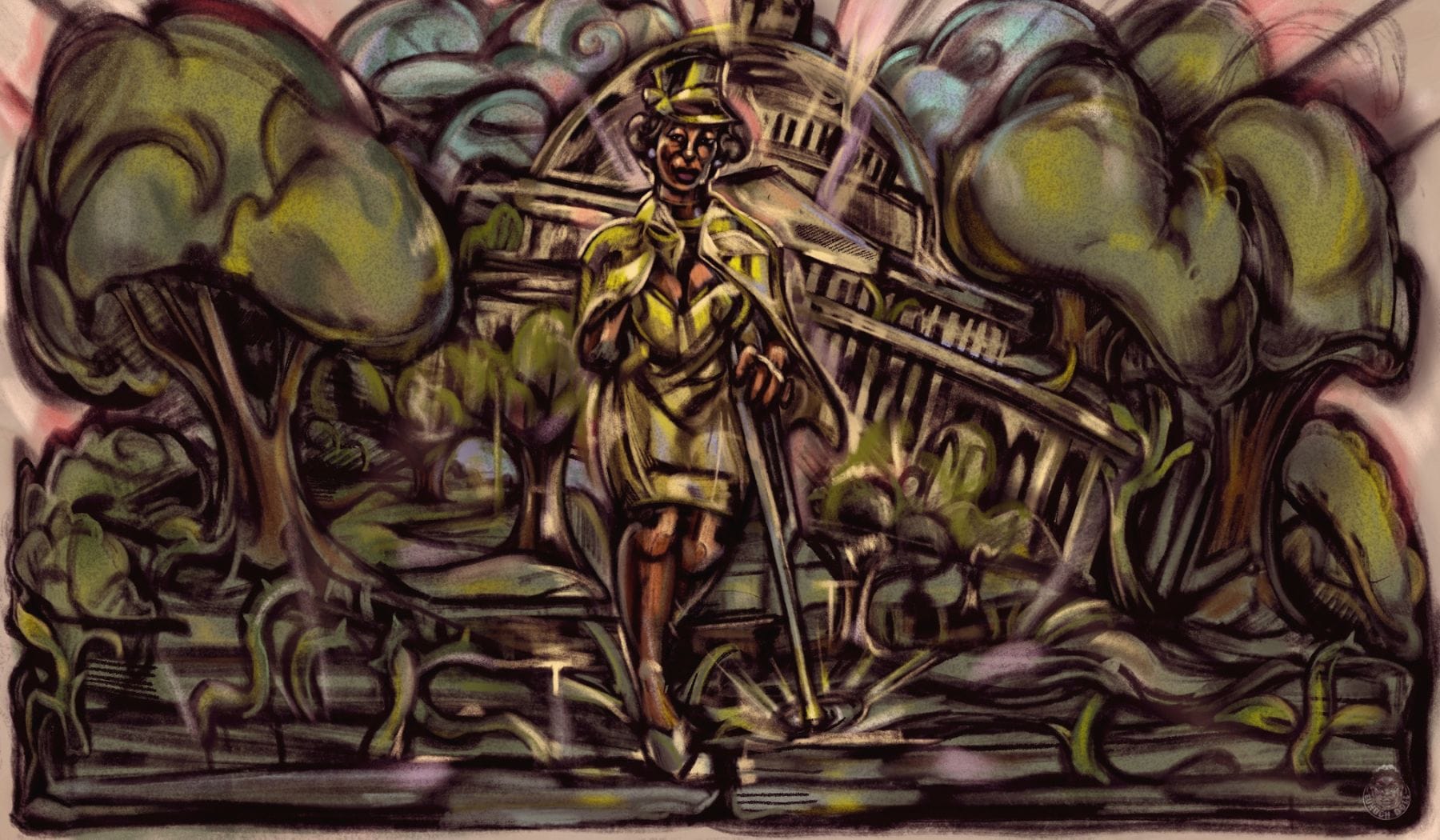
🎨 Artwork description, by Ava Glori-Jean Tuitt
"'Frances Unearthed' is created in tribute to the strength and power of Frances Thompson's testimony and in dedication to the important archival work done by Ashten is his article that so aptly tells a narrative of not only our trans ancestors perpetual existence but of our unwillingness to let these stories continue to be buried. Inspired by Frances’ work as a rootworker and spiritual leader in her community this illustration shows Frances connection to nature's power and the roots that exist beneath institutional powers and how that power can be used to dismantle the structures that seek to erase us. In this work she becomes an embodiment of that connection and erupts forth to create something new"
After her testimony, Thompson worked as a spiritual practitioner and fortune teller who sold protection charms.
Her public advocacy, spiritual practice, and identity as a Disabled, Black woman made her a target for frequent harassment. However, Frances did not back down from her role in her community and continued to live authentically.
It is thought that Frances Thompson was the first Transgender woman to testify before Congress, though her trans identity was not revealed until almost a decade later.
In 1876, Thompson was arrested and publicly outed as transgender. She was charged with "indecency" because she lived openly as a woman. When she could not afford the $50 bail, Thompson was sentenced to 100 days of labour.
She was forced to wear men's clothing and was publicly slandered. Her transgender status was unjustly used to silence her, and critics attempted to discredit her previous activism. Tragically, Frances died shortly after completing her sentence.
While some aspects of her story feel distant, others are disturbingly familiar, an echo that carries forward to today. Thompson’s story is over a century old, yet we are still confronting the violent racism and transphobia that endangers Black transfeminine people in the United States.
I first encountered Frances Thompson's testimony in the early days of the COVID-19 lockdown and the 2020 uprisings against police brutality and anti-Black racism. Now, in 2025, as we face increasingly hostile anti-trans policies in the U.S., I think of her again.
Assaults on Trans+ lives coded in the language of “drag bans," accusations of "gender identity fraud" and public scrutiny have become common conservative talking points.
Violent leaders have called the 14th Amendment into question, chillingly attempting to redefine who is "worthy" of rights. This escalatory rhetoric is dangerous, devastating, and all too familiar.
It can be difficult to continually defend our existence in the face of repression and criminalization. When that fear hangs heavy in the air, we should look toward people like Thompson, who remained vocal after repeated attempts to silence her.
What can we learn from this history?
As a conversion therapy survivor, my queerness is linked to state violence. I look up to Queer people of the past, who have demonstrated what it means to stand firm in their beliefs.
I wonder what it would be like to speak with Frances Thompson rather than read about her in 150-year-old newspapers. What advice would she have for those currently facing systemic, racialized, queerphobic violence?
Queer histories connect us. They ground us in a legacy of struggle and defiance. These narratives reverberate through us, reminding us of what is important. Historic fights for civil rights, led by Trans+ women of colour, have paved the way for all of us.
Figures like Frances Thompson demystify historical struggles and provide a tangible and human glimpse into the life of a courageous Black, disabled, transgender activist and survivor.
Rather than letting these histories become obscured, we need to embrace them as legacies of trans+ resilience.
We must allow stories like Frances Thompson's to energize and mobilize us. Rather than be silenced, we must build solidarity and continue to live as courageously as Frances Thompson did.
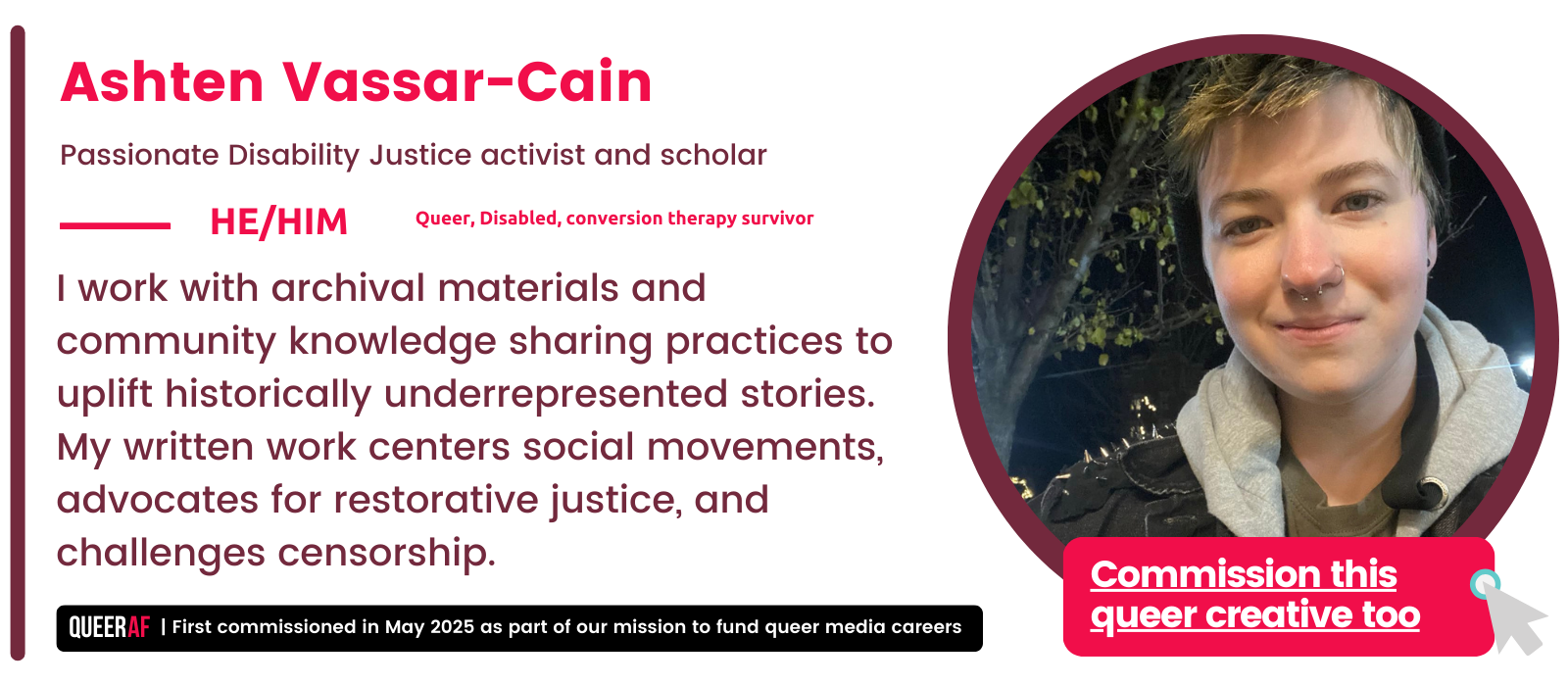
Have we convinced you of the power of investing in Trans+ creative talent to tell the millennia-old history of our community yet?
Can you see how it shuts down pernicous lies that queer and Trans+ identities are somehow new?
We've invested in over 20 Trans+ creatives, mentoring and even buying some professional audio equipment they can keep for life. It's a huge undertaking - but one we're not backing down from. If anything, we want to do more - and do it all your round.
QueerAF is the UK's only both press regulated and non-profit LGBTQIA+ publisher. And in the last few weeks, we've been working all hours to ensure that the UK's supreme court ruling on the legal definition of a woman - is understood by our community.
We were the only publisher in the country, mainstream or from the gay press, to work with a Trans+ journalist to cover the news. Indeed, to provide timely advice about what it means. Our stories have been used by the sector, and activists to fight back.
We can only win this fight if we all get the information we need to cut through the noise. We need to use nuanced, detailed analysis written from and for a queer perspective as the base for our activism.
That's what QueerAF does best. So please, we need you to upgrade today.

